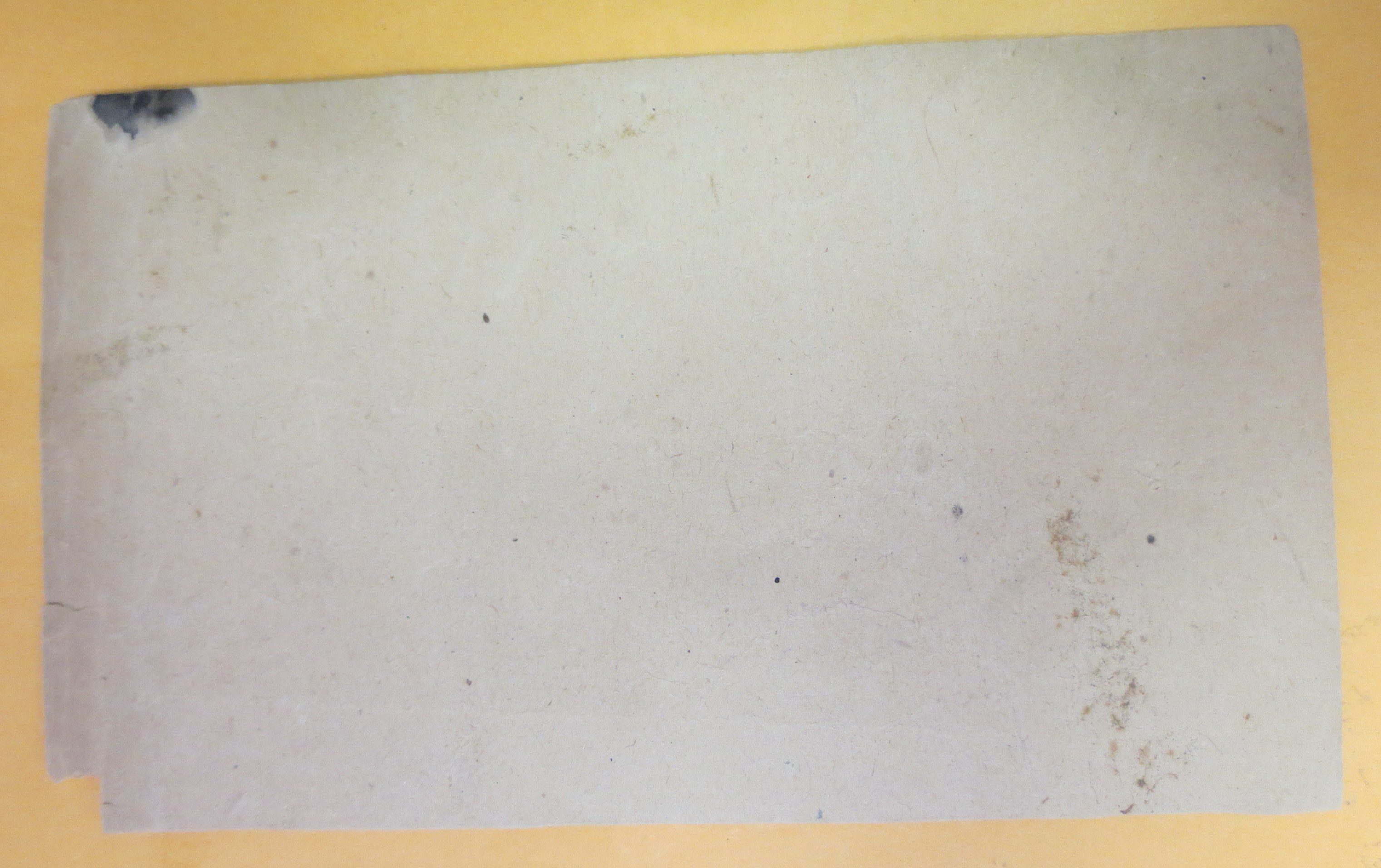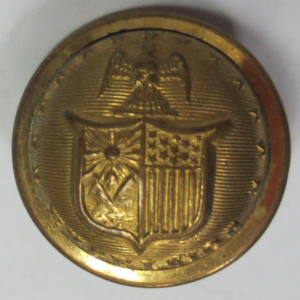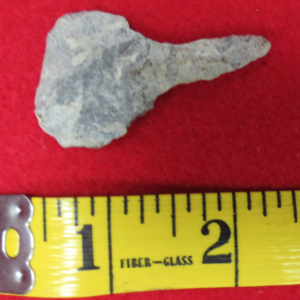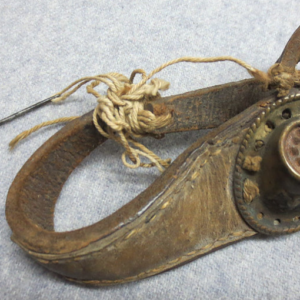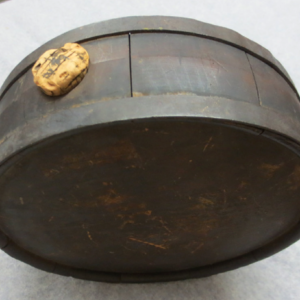Description
Very nice document issued at Richmond, Virginia, May 9th, 1865 by the Office of the Provost Marshall to Lt. C.H.F. de Mangin who is listed (in 1862) as a 1st Lieutenant in the 2nd Company, 3rd Regiment of the Louisiana French Brigade. It is glued to another piece of paper on the back, likely an old album, and there is an old ink stain on the upper right. The image of the reverse shows a piece missing but it was merely folded over–you can see it better in the image of the front. The document is signed by Assistant Provost Marshall, Union Major Theodore Miller of the 139th New York Volunteers.
Theodore Miller, age 26 years old. Enlisted on 8/12/1862 at Brooklyn, NY as a 1st Lieutenant. On 9/9/1862 he was commissioned into "A" Co., 139th New York Infantry He was Mustered Out on 6/19/1865 at Richmond, VA Promotions: Capt 1/19/1863; Major 3/14/1865 |
More research is needed on this elusive officer who appears to be a part of this unique unit, at least in the early War years:
From Lonn, Foreigners in the Confederacy, 113-15:
“In the entire history of the military companies of the Confederacy, nothing is more picturesque than the European Brigade. The threatened movement by the Federal forces to take Forts St. Philip and Jackson early in 1862 drew away from New Orleans so many men that it caused great concern for the safety of the city. By February 21 the formation of the famous European Brigade resulted, largely from unnaturalized Europeans resident in the city, for the preservation of order and for the defense of the city, and was composed of four regiments of infantry, to which was attached one independent company of infantry and one troop of cavalry. To form the brigade went the regiment of the French Guard under Colonel Paul Juge, Jr., the battalion of six companies of Hansa Guards, the battalion of Italian Guards under Major Della Valle, and Captain Shannon’s company of British Guards–this entire regiment under Colonel C.T. Buddecke; the regiment of the French Brigade; and the regiment of the Spanish Legion, Cazadores espanoles, under Commandant P. Avendano. The independent company was that of French Veterans under Captain Fournier, and the troop of cavalry bore the name of Orleans Guides. There even exists in the Confederate Archives a roll for an Austrian company under Captain Cognavich. The European Brigade numbered about 4,500 distributed as follows: 2,500 Frenchmen; 800 Spaniards; 500 Italians; 400 Germans, Dutch, and Scandinavians; and 500 Swiss, Belgians, English, Slavonians, and others. Organization was completed by the election of Colonel Paul Juge as brigadier general. Before the excitement had died down three European brigades in all had been formed, one exclusively for Frenchmen, the other two of Spanish, Italian, German, Dutch, Scandinavian, Belgian, and English citizens. The three brigadier generals to command these brigades, whom the Picayune tenderly called the “Three Guardsmen of the Crescent City,” were selected from among the French residents. Altogether their numbers amounted to around 10,000 men. The first brigade may not properly be regarded as wholly foreign as about 2,000 of the 3,000 members were Creoles, and are therefore not counted in the calculation of 10,000.
“The foreign brigades rendered excellent service during the anxious period preceding and during the actual capture of the city by the Federals, from the time when the alarm was sounded–twelve strokes of one of the church bells four times repeated–to the taking over of the city by General Butler. As there was only 2,800 Confederate troops left in the city, the mayor called on the European brigades and placed the city in their charge to repress thugs and lawless elements. When the frenzied cry arose to burn the city rather than allow it to fall into the hands of the Federals, these brigades repressed the tumult and prevented the destruction of the town. At the request of the mayor and the solicitation of a number of citizens, General Juge, although it had been his intention to retire as soon as the United States authorities took possession, kept the men, weary from four days of ceaseless vigilance, under arms until order was completely restored and fear was no longer entertained for the safety of life and property. The brigades were disbanded on the evening of May 2, their mission, a severe and disagreeable duty, accomplished. The violations of public order were few and slight according to the mayor, thanks to the European brigades.”

